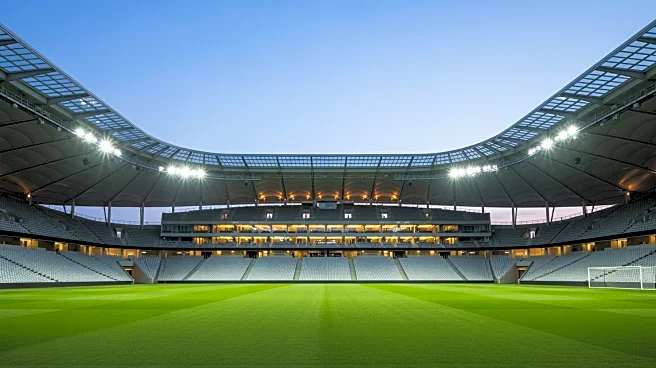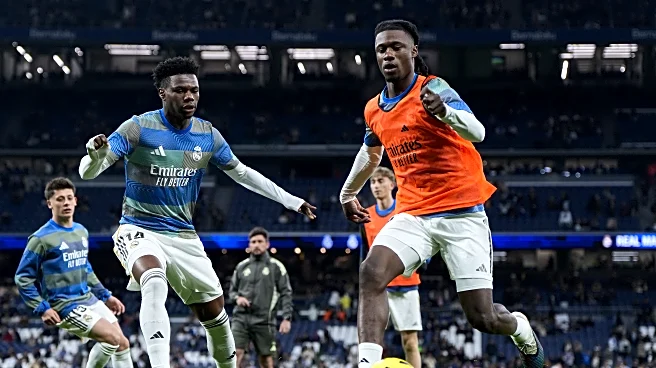What's Happening?
Barcelona will return to the Spotify Camp Nou this weekend for a LaLiga match against Athletic Club, following the receipt of a permit from the local council allowing matches with a capped capacity of 45,401.
The stadium has been closed for refurbishment since 2023, with the team playing home matches at the Olympic Stadium in the interim. The original plan was to return by the end of 2024, but delays pushed the timeline back. A test event earlier in November was deemed successful, leading to the permit request for increased capacity. The stadium's renovation is ongoing, with the bottom two tiers complete, but work on the third tier and roof continues. Full completion is expected by 2027, increasing capacity to 105,000.
Why It's Important?
The return to Camp Nou marks a significant milestone for Barcelona, allowing them to host matches in their iconic stadium once again, which is crucial for financial and fan engagement reasons. The increased capacity will enable the club to generate more revenue from ticket sales and enhance the matchday experience for fans. The renovation is part of a broader strategy to modernize the stadium and improve facilities, which is essential for maintaining the club's competitive edge and attracting top talent. The ability to host matches at Camp Nou also has implications for the club's performance in domestic and international competitions, as home advantage can be a critical factor.
What's Next?
Barcelona faces a busy schedule with upcoming matches against Chelsea in the Champions League and domestic games against Alavés and Atlético Madrid, all potentially at Camp Nou. The club is working to meet UEFA requirements to host the Champions League game against Frankfurt at Camp Nou, which involves ensuring covered areas for the directors' box. The ongoing renovation will continue to impact matchday logistics and operations until completion in 2027.
Beyond the Headlines
The renovation of Camp Nou reflects broader trends in sports infrastructure, where clubs are investing in modernizing facilities to enhance fan experience and operational efficiency. The project underscores the importance of balancing historical legacy with contemporary needs, as clubs seek to preserve iconic venues while adapting to modern standards.











